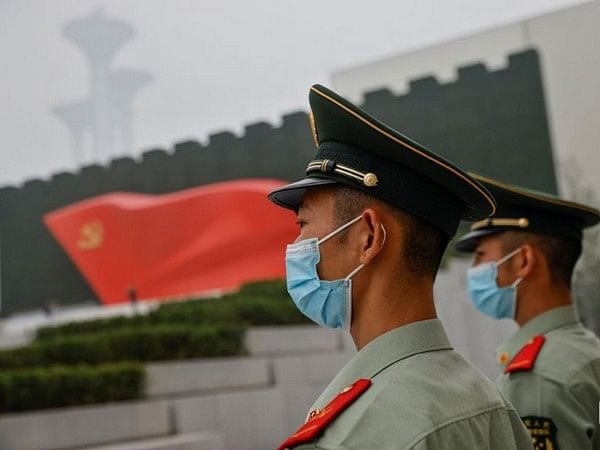Shocking revelations about China's overseas police stations
China has used an illegitimate method to apprehend overseas citizens it perceives as offenders, according to a recent report by the Madrid-based human rights organization Safeguard Defenders.
London: China has used an illegitimate method to apprehend overseas citizens it perceives as offenders, according to a recent report by the Madrid-based human rights organization Safeguard Defenders.
Security agencies frequently enlist the assistance of INTERPOL, the International Criminal Police Organization, in order to apprehend foreign offenders. Another diplomatic procedure is the formation of bilateral extradition treaties.
According to a Safeguard Defenders report titled "110 Overseas - Chinese Transnational Policing Gone Wild," China has established dozens of police "service stations" as security agencies in major cities worldwide.
It reveals how the campaign was allegedly launched on a small scale in 2018 to combat the growing issue of fraud and telecommunication fraud by Chinese nationals living abroad.
These so-called "service stations" are now breaking international law. The Chinese have set up a parallel policing mechanism in 53 countries to target dissidents and monitor their own citizens.
According to the report, between April 2021 and July 2022, 230,000 nationals were "persuaded to return" to face criminal proceedings in China.
"They are already controlling inside, but controlling outside is more difficult, so they want to focus on dissident Chinese who live in free countries, not allow them to speak freely," said Thubten Wangchen, a Tibetan living in exile.
The Chinese Community Party's United Front Work Department is also linked to overseas Chinese diaspora associations, according to Safeguard Defenders. Some of these organizations are registered to act as liaisons with the Chinese police, which is against local regulations.
Security agencies and governments in Europe, Canada, and the United States have been taken aback by the details of China's overseas campaign.
Unauthorized Chinese police stations in cities such as New York, according to FBI Director Christopher Wray, violate sovereignty and circumvent standard judicial and law enforcement cooperation processes.
Canada and the Netherlands have joined the United States in investigating these secret Chinese police stations.
The Royal Canadian Mounted Police stated that it takes "threats to the security of individuals living in Canada very seriously" and is aware that foreign states may seek to intimidate or harm Canadian communities or individuals.
"People are being approached with threats or other means to persuade them to return home," said Rahime, who is currently in London and is affiliated with the World Uyghur Congress.
Beijing has been charged with using unlawful tactics against targeted people or members of their families, undermining the integrity of any legal procedure, and violating even the most fundamental rights of suspects.
Furthermore, there is a blatant disregard for the use of legitimate channels and procedures in international relations.
Despite China's insistence on the creation of bilateral extradition treaties or other mechanisms of judicial cooperation, which serve both a specific propaganda purpose in legitimizing the Chinese Communist Party-controlled judicial system and are cultivated to have a chilling effect on the rapidly increasing number of people fleeing China, it rarely uses these legal international procedures.
China, believing itself above reproach, has established an alternative policing and judicial system within third countries rather than cooperating with local authorities and fully respecting territorial sovereignty.
The world can hold out hope that China will be held accountable for its flagrant disregard for international law and human rights. (ANI)



